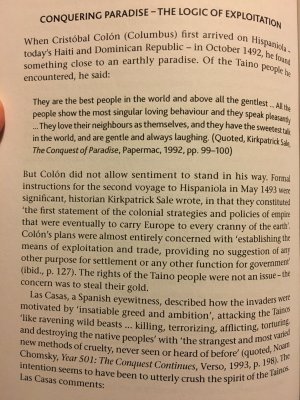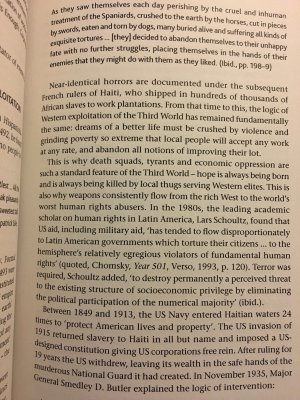I thought as much. The trouble with seeing things as inevitable is it works against active change. People in power want their population to believe nothing can be changed unless they sanction it. Of course Sensors tend to think they way most of the time too, which helps elites as they are more common. The illusion most people are under is that wars are inevitable because people will always fight and disagree like kids in the playground, but that is not a good way of seeing things, because wars are planned and usually rely on propaganda and lies to coerce and convince a population it’s unnecessary. [It’s a bit different now we have voluntary military jobs and no conscription.] None of these are inevitabilities. As soon as someone claims as much, they are a little bit of the problem, and are doing human agency a disservice. This is why WW2 has been mythologised as the Good War and is still revered by elites for its propaganda value or they genuinely believe in it. The USA knew about killing of Jews long before they entered WW2. There were also many admirers of Hitler in the USA and there was nearly a military coup, largely avoided because Gen Smedley D Butler wouldn’t cooperate and became an anti war advocate. I’m sure their decision to enter was primarily financial and/or strategic, and not primarily a humanistic one. You only have to read some Noam Chomsky to open your eyes to how “good” the US government are, and of course Iraq showed them up big style, along with Blair etc etc. It’s also worth noting here that nazism came from the middle classes not working people, similarly to the situation in the USA. It suits elites to blame the working people, and use the fear of nazism as a way to reduce freedoms and increase state control, because it allows them to avoid taking any blame for the rigged society they oversee, and thus any action to redress the injustices.



